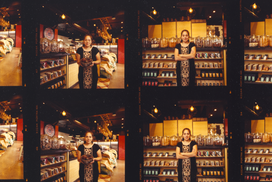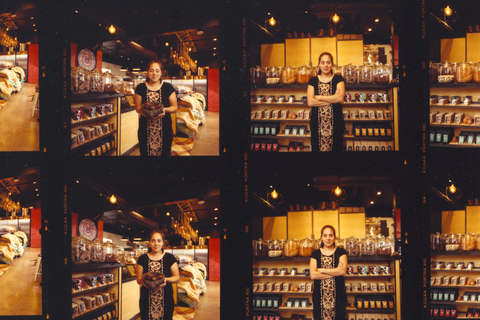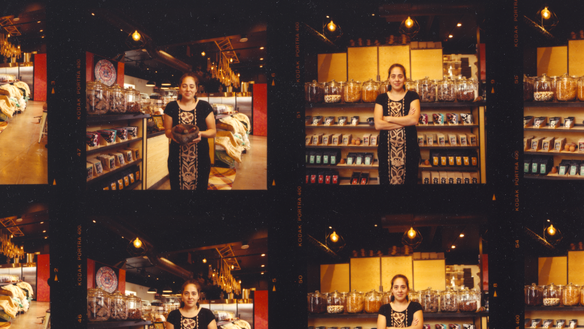Transcript
Eric Trujillo: I come from a family of artisans, musicians, mechanics, generations of people who very honorably worked with their hands. I feel very strongly that I write on the backs of my ancestors and using my hands as a means of income, as a means of creativity. My day doesn't go by that. I don't think about that. My job as a luthier is to repair and restore and build instruments.
The violin world is traditional in a lot of senses. You see, a lot of 'em tend to look the same. And from a traditional European kind of a school Mi Vida Strings sounding Hispanic, we worried about how it would catch on in the violin community.
I knew that I could do just as good a work as any other fine violin shop could. I wanted people to see that I just happened to be a Chicano. Musicians spend so much of their lives with these instruments. They become very personal. They're bringing it into me, and there's a lot of trust that goes with that, and the amount of focus and attention to detail is extremely intense. I had to do something to disconnect, to turn off the switch, the intense switch, and really allow myself to reconnect with my roots.
I became part of an amazing culture in the low riding community and met some guys in a group called the Viejitos Car Club. My earliest memories were listening to music in my dad's garage. It was a really tight community in the West side. It was a poor community, but we never felt poor.
I was very fortunate to watch my grandparents, and my mother and my father worked very hard. I think if that was the great gift that they gave and left me, they would be that. My kids have grown up around this shop and have become quite good luthier themselves. That's one of the great successes.
As a father, I just want to be known as a good person who strive for quality and show kids that look like me that you can do things at the highest level and any kind of art form that you choose to. You just have to go out and do the work.







